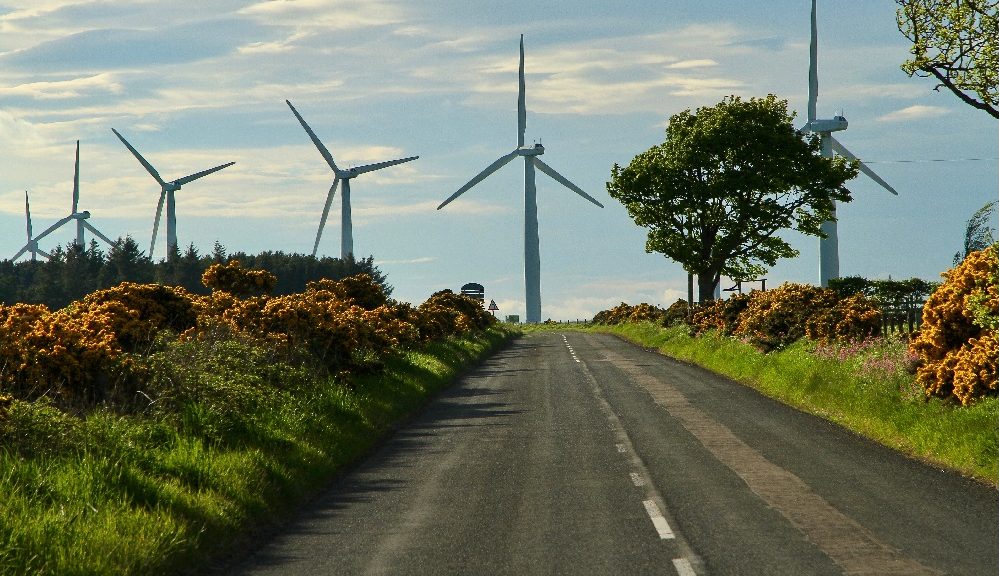UK Net Zero Strategy Published
The UK Government has launched a Net Zero Strategy which sets out how the UK will deliver on its commitment to reach net zero emissions by 2050.
The economy-wide strategy, which focuses heavily on a ‘whole-system approach’, includes a series of investments in decarbonisation, and plans to mobilise £90 billion of private investment by 2030. The UK Government has also committed to a range of actions including:
- Boost the existing £640 million Nature for Climate Fund with a further £124 million of new money.
- Restoring at least 35,000 hectares of peatlands in England by 2025, through the Nature for Climate Fund. and restoring approximately 280,000 hectares of peat in England by 2050.
- Increase investment in industry-led research and development into solutions to help deliver net zero in agriculture and horticulture, including through the new Farming Innovation Programme.
- Ensuring 75% of farmers in England will be engaged in low carbon practices by 2030, rising to 85% by 2035.
- Mobilise private investment into tree planting, including through the Woodland Carbon Code, with the support of government’s Woodland Carbon Guarantee, and into peat restoration through implementing a package of reforms to the Peatland Code.
- Ensuring the planning system can support the deployment of low carbon energy infrastructure.
- Delivering 40GW of offshore wind, including 1GW of innovative floating offshore wind by 2030.
- Reforming system governance so that the whole system can achieve our net zero ambitions.
Environment Secretary George Eustice said
Today’s plans set the UK on a clear path to net zero by 2050 and demonstrate how we will harness the power of nature to get there.
As well as restoring and protecting peatlands and increasing tree planting, we are determined to grow towards a net zero economy. Whether it’s funding to help farmers decarbonise or support to deliver a circular economy to cut down on waste, we will support sectors to adapt.
The Net Zero Strategy will be submitted to the United Nations Framework Convention on Climate Change (UNFCCC) as the UK’s second Long Term Low Greenhouse Gas Emission Development Strategy under the Paris Agreement.
The Strategy has been published alongside HM Treasury’s Net Zero Review which explores the key issues and trade-offs as the UK decarbonises, as well as changes to the economy over the next thirty years.
Jason Reeves, CIEEM’s Head of Policy, said:
We are pleased to see Government publishing this strategy and taking the climate emergency seriously. However, it must be more than a document waved about ahead of COP26. There must be meaningful action and follow through.
Nature-based Solutions must be a key element of the UK’s ongoing progress, as noted in CIEEM’s statement on the two COP events. Woodlands and peatlands are key habitats for carbon sequestration, as referenced in our statement on carbon sequestration and habitats.
In restoring these key habitats, we must not overlook natural regeneration and protecting existing habitats that have already locked away carbon. We must remember that establishing new woodland, peatlands and other habitats will take time to develop and hence sequester carbon.
We urge Government to ensure that experts are involved in every stage to ensure that the right habitats are set in the right places, for multiple benefits rather just carbon sequestration. For example, native mixed woodlands are far more valuable for multiple benefits such as air quality, flooding attenuation, boosting biodiversity and sequestering carbon, when compared to monoculture plantations.
Government must also not overlook the vast contribution that a healthy marine ecosystem contributes to carbon sequestration and climate stability.
We are disappointed that nature spending is so low. There needs to be at least £2 billion per year spending on nature restoration, including ensuring that we have skilled experts to implement restoration and management and investing in the skills and training for future nature professionals so that we can see the revival of nature through the decades to come. The UK is one of the most nature-depleted countries on Earth, we need to truly value our life support systems.
